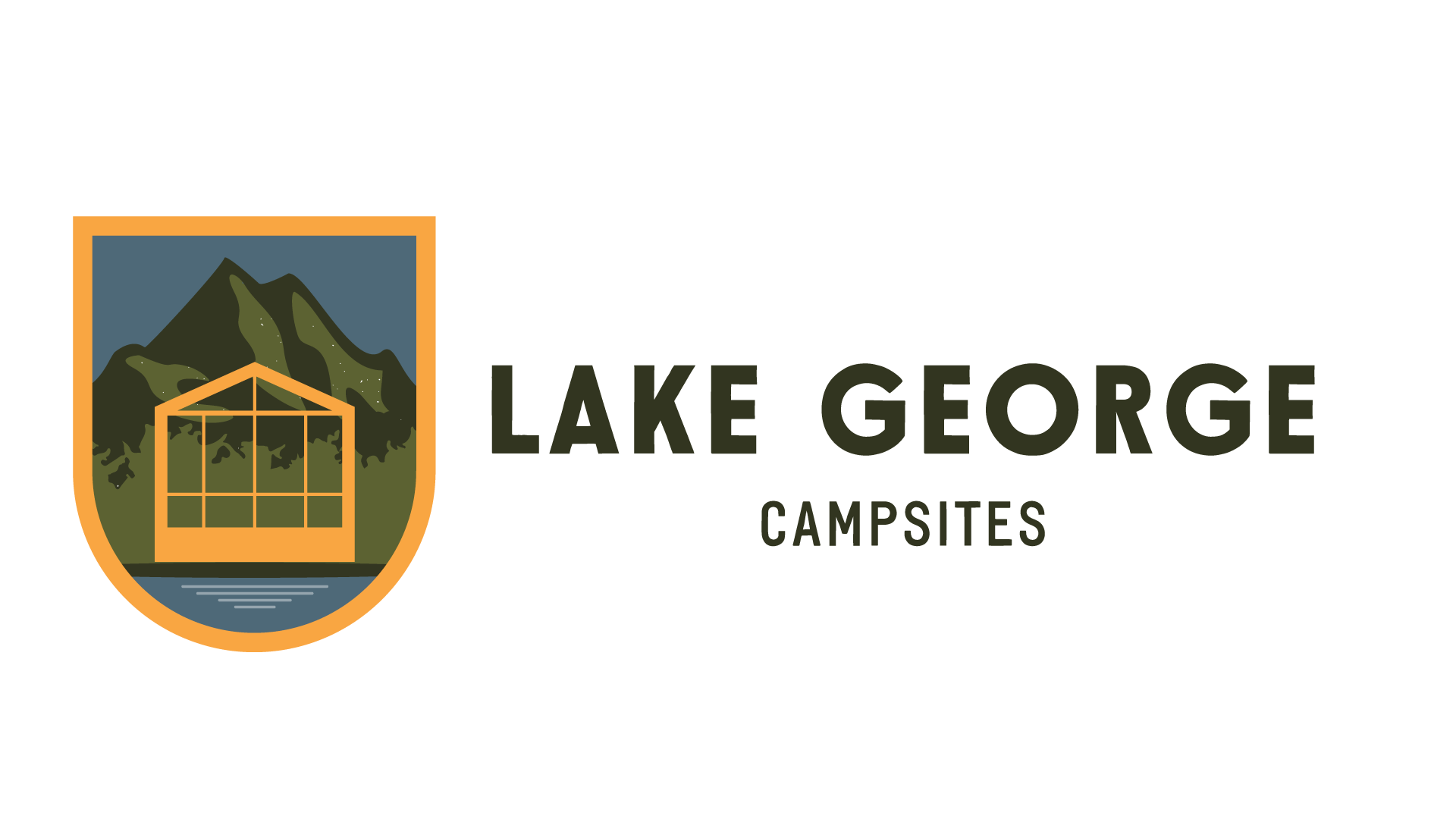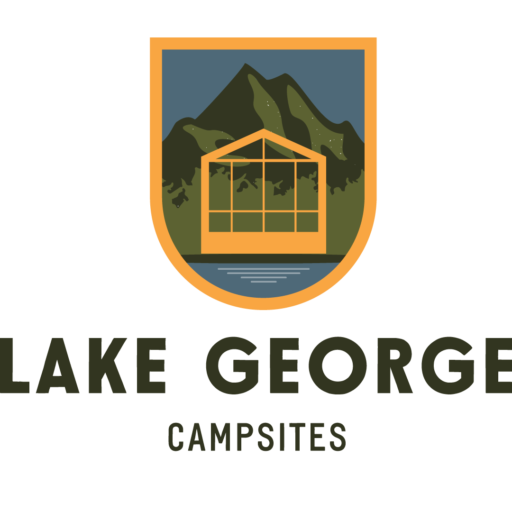
30 May 45 Camping Terms You Should Know
If you are new to camping in Lake George or elsewhere in the Adirondacks, all the things you have to learn can easily become overwhelming: learning to pitch a tent, cook a meal over a fire, safely start and extinguish a campfire, etc. In addition to all of that, there is a lot of camping-specific jargon that new campers will need to learn to be well-prepared.
We’ve compiled a list of useful terminology that will come in handy for your camping adventures, whether they be in a tent, cottage, or RV.
General Camping Terminology
- Bear locker: Metal locker to keep bears and other wildlife from eating a camper’s food supply.
- Blaze: A sign or painted symbol used to mark a trail.
- Boardwalk: A wooden bridge providing a walkway along a trail or beach. Boardwalks are typically built to protect fragile areas from hikers or to protect hikers from waterways and/or wildlife.
- Bushwhacking: Making one’s way through bushes or undergrowth without the aid of a formal trail.
- Cairn: A stack of rocks used to mark a trail’s route through areas without trees.
- Carabiner: A D-shaped metal coupling link with a safety closure.
- Day Pack: A small, often lightweight backpack filled with essential items that hikers take out for a day outing.
- Double-wall construction: A type of tent with a rain fly that is separate from the inner mesh tent. They generally offer greater comfort, protection, and privacy.
- FCFS campsite: A site that can only be booked on-site by the first person to request it.
- Freestanding tent: A tent that does not require stakes for stability.
- Glamping: Short for glamorous camping, glamping involves luxurious camping facilities such as yurts, cabins, or cottages.

- Ground stakes: Small anchors used to secure a tent to the ground.
- Kindling: Necessary when building a campfire, kindling consists of thin twigs.
- Leave no trace: A camping concept that adheres to a strict policy where visitors are not to leave any trash or evidence of their stay to preserve the natural area.
- Potable water: Water that is safe to drink without prior treatment.
- Primitive campsite: A campsite with very basic amenities like basic shelters, pit toilets, and fire pits.
- Rain fly: The outermost layer of a tent that helps keep it waterproof and windproof.
- R-Value: A measurement that shows the effectiveness of a sleeping pad, sleeping bag, or tent’s insulation. The higher the R-value, the better the insulation.
- Summit: The highest point of a hill or mountain.
- Stile: A structure built over a fence that allows hikers to cross over without having to deal with a gate.
- Switchback: A trail on a steep mountain that zig zags to gradually descend or ascend a hiking trail.
- Tinder: The first type of fuel used when building a campfire that consists of any highly combustible material. Examples of tinder include leaves and pine needles.
- Topographic map: A map with contour lines that indicate the shape and features of the land.
- Trailhead: The place where a trail begins.
RV Camping Terminology
- Back-in site: A campsite that requires the RV driver to back into it.
- Blackwater: Wastewater from an RV or trailer toilet.
- Boondocking: Also referred to as dry camping, boondocking describes RV camping without any electric, water, or sewer hookups and only relying on the self-contained facilities of the RV.
- Class A Motorhome: Class A motorhomes are built using a very strong, heavy-duty frame. They resemble a bus and feature large living areas.
- Class B Motorhome: Class B motorhomes, commonly known as camper vans, are the smallest category of motorhomes. There is little room for storage and a small interior space.
- Class C Motorhome: Class C motorhomes are built with a cabin chassis and have the ability to tow a separate car.
- Cockpit: The front of an RV where the driver and passenger sit.
- Drive-through campsite: Designed for large RVs, this type of campsite allows the driver to enter from one end and pull through to exit from the other.
- Dump station: A place one can dispose of black water and grey water from RV holding tanks, typically found at RV parks, campgrounds, and gas stations.
- Full hookup site: Full hookup sites have access to a campground’s electric, water, and sewer supplies.

- Grey water: Wastewater from RV baths, sinks, washing machines, and kitchen appliances.
- Gross Axle Weight Rating (GAWR): The maximum allowable weight for each axle of an RV. This figure includes everything you load into the RV as well as tires, wheels, springs, and axle components.
- Gross Combination Weight Rating (GCWR): The maximum allowable weight of the tow vehicle and attached towed vehicle combined.
- Gross Vehicle Weight Rating (GCWR): The maximum allowable weight of a fully-loaded vehicle, including everything (passengers, cargo, oil, gas, propane, fresh water, etc.).
- Holding tanks: Three tanks on an RV that contain fresh, grey, and black water.
- Passport America: A discount RV camping club that offers discounts at campsites across the U.S.
- Rig: One of the many terms used to refer to an RV.
- Shore cord: The external electrical cord on your RV that connects to the electrical box at a campsite.
- Toad: A small vehicle towed behind an RV.
- Toy hauler: An RV that is capable of carrying motorcycles, dirt bikes, ATVs, etc., inside of it.
- Underbelly: The underside of an RV containing its pipes, valves, and water hoses.
Now that you are up to speed on all of the important camping terminology, it’s time to book your next camping adventure! Lake George Campsites is among some of the best campgrounds in NY. Our campground consists of 19 cozy cottages, 250 RV and tent sites, and all the amenities you need for a successful family camping experience. Book your 2023 stay today! We are open for the season and would love for your Lake George camping trip to take place with us.

